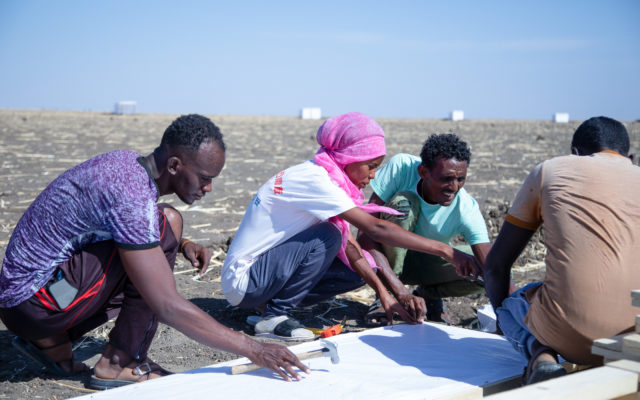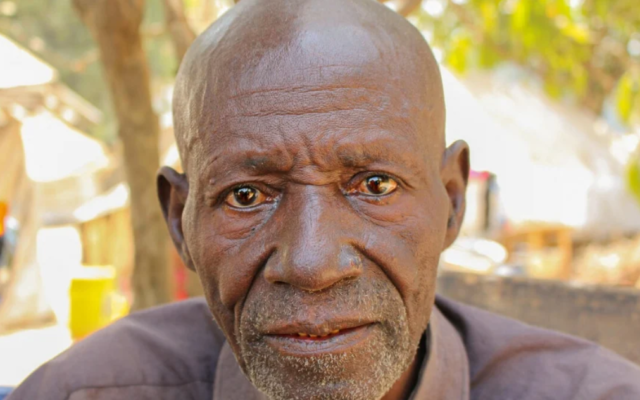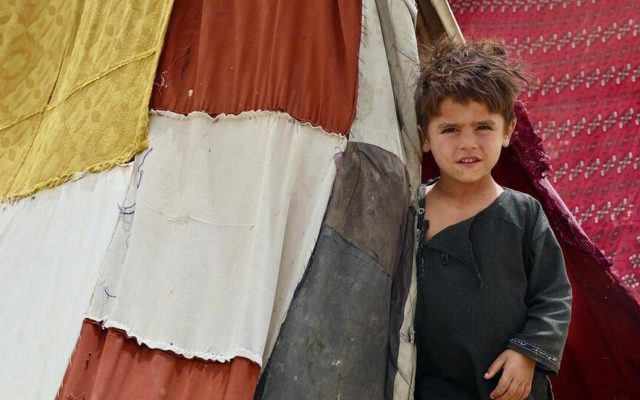“I saw dead bodies in front of me and I couldn’t stay.”
Dwindling water supplies are fuelling violence in Cameroon and forcing thousands of families to make the dangerous journey across the river to Chad.
© UNHCR/Aristophane Ngargoune
Climate change is hitting this region of the Sahel particularly hard. Temperatures are rising 1.5 times faster than the global average and the lack of rain spells disaster for local communities.
The UN estimates that 80 per cent of farmland in the region is now degraded – meaning families are struggling to grow crops and harvest enough to eat from the barren soil.
In desperation, farmers have dug vast trenches beside the Logone River to retain precious water for their fields. But these trenches can be treacherous – since cattle belonging to rival herdsmen stumble in, get stuck and sometimes break their legs trying to scramble out.
When this happens, violence often flares – as it did back in August this year. Tensions spilled over, things escalated fast. And soon, bows and machetes were being raised, villages torched and people forced to flee in their thousands.
Amongst them was 52-year-old Jean-Pierre Semana. Along with his wife and six children, he took a boat and escaped to Oundouma, a village across the river in Chad.
“It was the war that brought me here to Chad,” he says. “When we left, I saw dead bodies in front of me and I couldn’t stay.”
Amina Moussa (above) was also caught up in violence. She was forced to leave her husband behind and flee whilst heavily pregnant – feeling her first contractions on her way to Oundouma.
“I had to rest every 100 metres,” she remembers. “A midwife from the village helped me deliver my baby two days after I arrived here.”
Swelled by the arrival of people like Amina and Jean-Pierre, the population of Oundouma has tripled in the aftermath of the clashes. 11,000 refugees are now thought to be scattered in villages along Chad’s river bank – sleeping under trees or in disused buildings. Another 12,500 people are internally displaced within Cameroon.
UNHCR is working hard to make sure refugees in Chad have the correct registration papers, as well as hot food, mattresses and mosquito nets to protect them from malaria.
But the root cause of this problem is climate change, a far more complex challenge.





